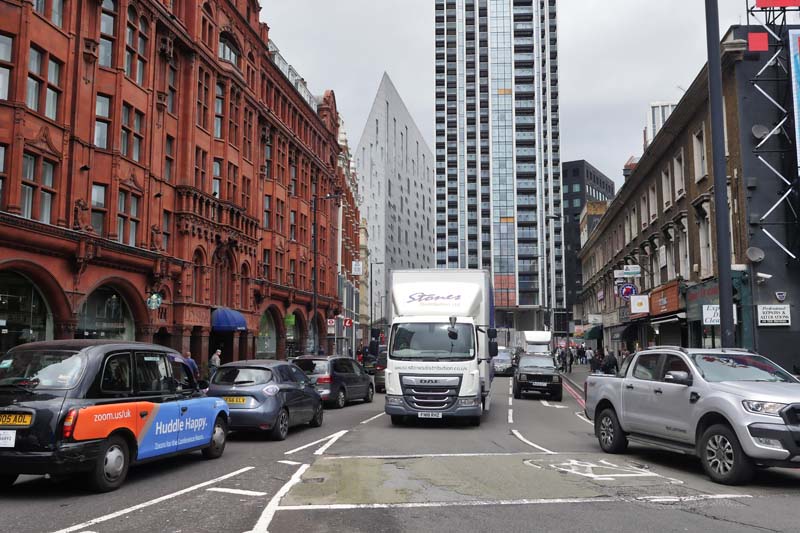
FTA has urged the government for clarity on the use of road space for logistics movements, after guidelines were published for post-COVID-19 active travel.
The guidelines, issued by transport secretary Grant Shapps MP, reportedly failed to contain recommendations for the sector.
Natalie Chapman, Head of Urban Policy at FTA, commented that the published plans overlooked the key role which logistics plays in keeping cities and towns stocked with the goods and services they require. It also did not provide the scope needed to ensure logistics operators can supply their customers safely and effectively.
She explained: “The published statutory guidance directs councils to reallocate road space for significantly-increased numbers of cyclists and pedestrians but overlooks access for those who keep our cities supplied with everything they need – logistics vehicles.
“While the government seeks to encourage active travel and social distancing through its strategy, which are both laudable ambitions, there are many areas affecting the safe movement of goods and services which have been left out of the plan. FTA has written to Transport Minister Baroness Vere to request urgent clarification on several areas which are key to safe and efficient logistics movements throughout our cities. And while we, and our members, fully support the government’s intentions – to protect the public from COVID-19 and improve air quality significantly as the economy returns to normal – the needs of our sector must not be overlooked.
“FTA is urging authorities to provide reassurance that access to the kerbside for deliveries and servicing activity is maintained at all times – particularly as shops begin to reopen and demand for goods increases – and that any temporary reallocation of road space for walking and cycling be flexed and changed dynamically to reflect changes in demand and to ensure access for vital logistics services. Road closures and diversions must consider the increased journey times involved and the potential disruption which displaced traffic could cause on nearby roads.
“As businesses get up and running again, it is important that any enforcement against delivery vehicles is proportionate and focused on vehicles causing an obstruction to traffic flow or a danger to road safety. It would be preferable, too, if restrictions on delivery hours could be reviewed to enable, where possible, for deliveries to take place at times when the roads are quieter, including earlier in the morning, later in the evening, overnight and at weekends to enable businesses to get back on their feet without interruption or delay.
“Consultations with local businesses are also vital before plans are implemented wherever possible, even though their shop-fronts may be closed, so they can make sure proposals meet their needs when they re-open. By working together, we can ensure the final plans for our towns and cities benefit all involved: the safety of citizens, the quality of our air, and the smooth operation of logistics.”








